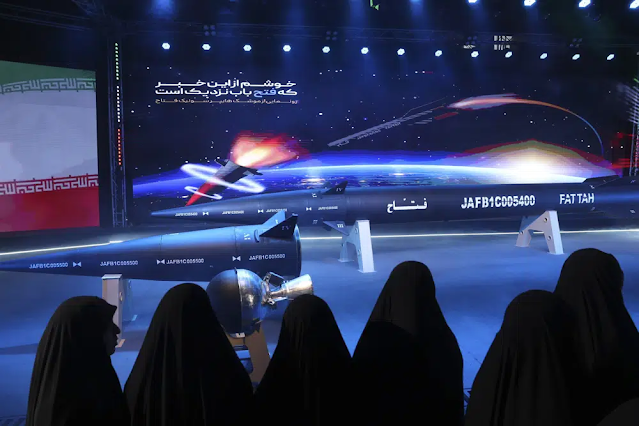Iran unveils its first hypersonic missile
The Islamic Republic of Iran has unveiled its first-ever hypersonic missile, Fattah, which has the ability to penetrate missile defense systems. The country has said that the missile can give a military edge to the Iranian defense system.
State media published photographs of an unveiling event for the missile. The event was attended by Iranian President Ebrahim Raisi and senior commanders of the Islamic Revolutionary Guard Corps (IRGC) on Tuesday, showing the domestically manufactured black missile.
According to Iranian media, the missile has a range of 1,400km (870 miles), a speed of up to 5,145 meters or 16,880 feet per second, a moveable secondary nozzle, and solid propellants that allow for high mobility.
The Supreme Leader of Iran, Ayatollah Ali Khamenei, reportedly selected the name of the missile, which translates to “the opener”. Hypersonic missiles have the capability to provide a longer range, shorter range, and high survivability against enemies.
The Iranian President said, “Today, we feel that the deterrent power has been formed. This power is an anchor of lasting security and peace for the regional countries.” Gen. Amir Ali Hajizadeh, the head of the paramilitary Revolutionary Guard’s aerospace program, lauded the capability of the missile. He said, “There exists no system that can rival or counter this missile.”
China is thought to be after the weaponry, as is the United States. Russia claims to have already deployed the weapons and has claimed to have used them on the battlefield in Ukraine. However, speed and maneuverability are not guarantees that the missile will hit its objective.
The United States, Russia, China, and North Korea are the only countries believed to have tested hypersonic missiles. North Korea has been testing ballistic missiles since last year. It has expanded its military capabilities in recent months. Japan, the United States, and South Korea have repeatedly condemned North Korea’s ballistic missile tests.

.png)
Comments
Post a Comment